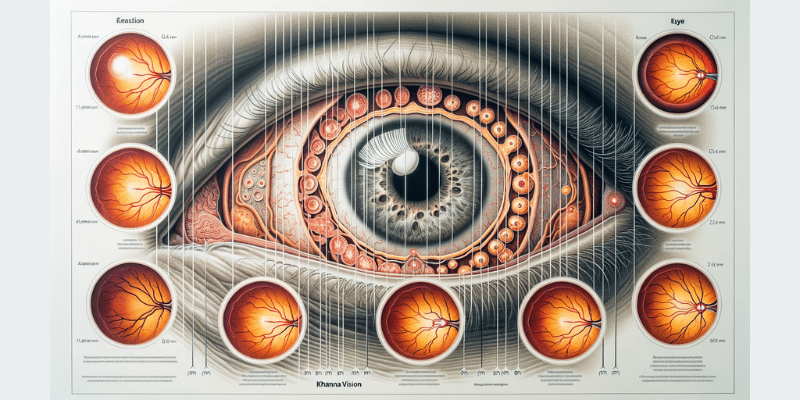Macular degeneration, also known as age-related macular degeneration (AMD), is a progressive eye condition that affects the macula, the central part of the retina responsible for sharp, central vision. As the leading cause of vision loss among older adults, understanding and managing AMD is crucial for maintaining optimal eye health.

Understanding the Macula and its Role: The macula is a small area in the center of the retina that ensures our central vision is clear and sharp. It’s responsible for tasks like reading, driving, recognizing faces, and seeing objects in fine detail. When the macula deteriorates due to AMD, central vision becomes blurred or distorted, while peripheral vision remains unaffected.
Types of Macular Degeneration: There are two primary forms of AMD:
- Dry AMD: The more common of the two, dry AMD is characterized by the thinning of the macula and the presence of drusen, small yellow deposits beneath the retina. Vision loss from dry AMD is usually gradual.
- Wet AMD: This form involves the growth of abnormal blood vessels beneath the retina, which leak fluid and blood. Wet AMD can lead to rapid and severe vision loss if not treated promptly.
Causes and Risk Factors: While the exact cause of AMD is unknown, several risk factors have been identified, including age, genetics, smoking, high blood pressure, and obesity. Additionally, prolonged exposure to ultraviolet (UV) light and a diet lacking essential nutrients can also contribute to the development of AMD.
Symptoms and Diagnosis: Early-stage AMD might not manifest any symptoms. However, as the condition progresses, one might experience blurred or distorted vision, dark spots in the central vision, or altered color perception. A comprehensive eye exam at clinics like Khanna Vision under the guidance of Dr. Rajesh Khanna MD can detect early signs of AMD, even before symptoms emerge.
Treatment and Management: While there’s no cure for AMD, treatments can slow its progression or improve vision. For wet AMD, treatments include laser therapy, anti-VEGF injections, and photodynamic therapy. Dry AMD doesn’t have a specific treatment, but a combination of specific vitamins and minerals can reduce the risk of the condition worsening.
Prevention and Lifestyle Changes: Adopting a healthy lifestyle can significantly reduce the risk of AMD. This includes consuming a diet rich in green leafy vegetables and fish, maintaining a healthy weight, managing blood pressure, wearing sunglasses to block UV rays, and regular eye check-ups.
Conclusion: Macular degeneration is a serious condition, but with early detection and appropriate management, its impact on vision can be mitigated. Clinics like Khanna Vision, led by the expertise of Dr. Rajesh Khanna MD, play a pivotal role in providing comprehensive care and guidance for those affected by AMD.
Leave a Reply